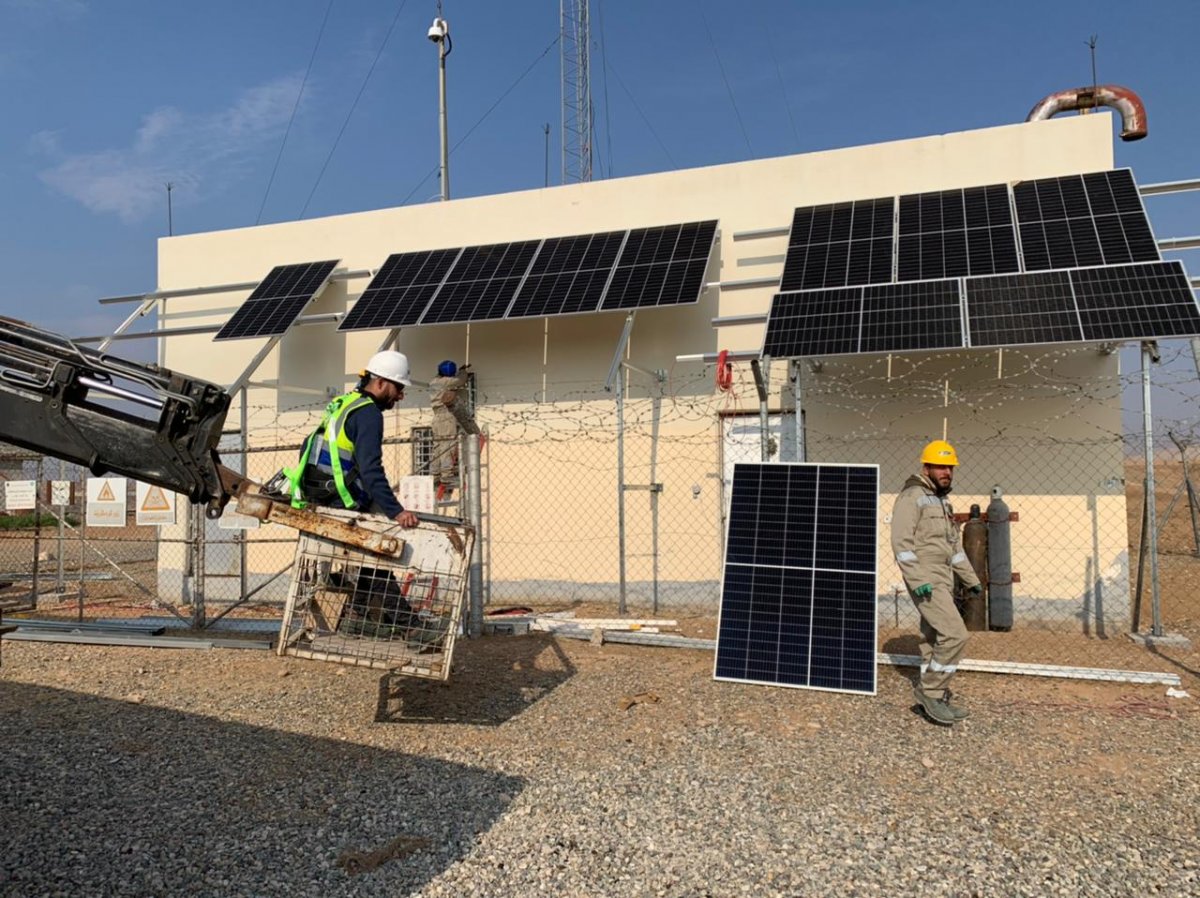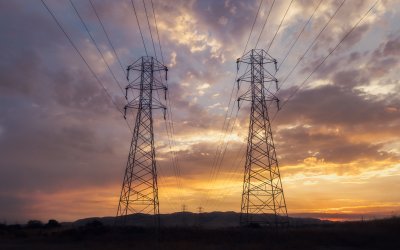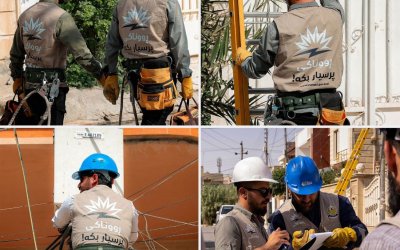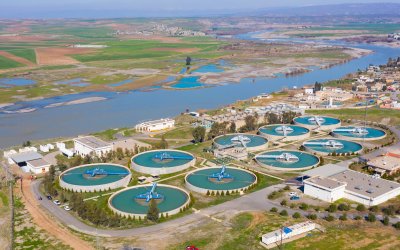Introduction
Every year, the local government in Basra gives public sector employees a “heat holiday” when temperatures hit or exceed 50 degrees Celsius, an approach that has been adopted by other cities across the country. This policy is designed to make summer months more tolerable for government workers, but it only offers limited comfort. By staying at home, the employees endure long hours of power outages and increased air and noise pollution from privately operated, diesel generators. Iraq is expected to experience a growing number of these high-temperature days in the coming years. It is imperative that the country explore renewable energy solutions such as solar power. Yet, the road ahead is complicated.
Although wind and hydropower energy resources are viable renewable energy options in Iraq, the country holds particular advantages with regard to solar energy. The country receives an average irradiation of 5.6 kWh per square meter per day and over 3,000 hours of sunshine per year. Yet, it is far-fetched to expect Iraq will make a major turn towards renewables in the near future, but this does not mean that progress cannot be made. The state should take concrete steps by investing in relevant infrastructure, strengthening its policy framework regarding financing for solar power projects, and overcoming technical and political impediments.
Twenty years after the fall of the Ba’athist regime, Iraq’s energy sector continues to fall short of both growing demand and the ambitions of successive governments to improve capacity. Power outages and dependence on fossil fuels have only increased and the supply-demand gap has only grown. In 2023, the country’s power plants produced around 24,000 MW, which is far less than the estimated 34,000 MW needed to cover domestic demand. Iraq currently relies on natural gas imports from Iran and power transmissions from other neighboring countries to offset the shortfall. By 2030, however, power demand is expected to double because of population and economic growth. In hopes of addressing this challenge and becoming more self-reliant, Iraq has plans for new projects to exploit its natural gas resources. However, investing in a transition to solar energy is another crucial part of a holistic strategy that will contribute to Iraq’s economic development, stability, and reduction of environmental pollution. This paper explores how the country can harness the potential of the emerging renewable energy industry and amplify Iraq’s transition efforts.
Why Transition to Renewable Energy?
Over the last two decades, long and frequent power outages have been a major factor in insecurity in Iraq. Compounded by extreme heatwaves and halting political progress, energy shortfalls sparked protests in different parts of the country. In some cases, the demonstrations escalated into violent clashes and even forced the government of former prime minister Adil Abdul-Mahdi to resign during the Tishreen protests in 2019. But shifting to renewable energy goes beyond merely bolstering stability and economic development.
Investing in renewable energy solutions will help Iraq to meet its Nationally Determined Contributions (NDCs) under the Paris Agreement, but also improve the lives of its citizens for generations to come.
Venturing into renewable solutions would provide some environmental relief by curbing carbon emissions. More than 80% of electricity generated in Iraq comes from fossil fuel sources. Despite efforts to capture natural gas, Iraq still flares billions of cubic meters every year, making it the second-largest source of gas flaring worldwide after Russia. Yet, even if Iraq diverted all its natural gas resources to power generation, carbon emissions would remain a big source of environmental pollution. Privately operated diesel generators are a major contributor in this regard. Carbon emissions result in myriad health and environmental problems in Iraq, especially in the southern provinces where reports have documented an increase in health issues. Cases of asthma, hypertension, and cancers like leukaemia are all linked to chemicals present in fossil fuels that are polluting the air, land, and water. Therefore, investing in renewable energy solutions will help Iraq to meet its Nationally Determined Contributions (NDCs) under the Paris Agreement, but also improve the lives of its citizens for generations to come.
Ambitious Policies and Flawed Execution
Iraq has suffered from energy shortages since the early 1990s because of wars, sanctions, and outdated infrastructure. After 2003, the new government promised to rebuild the electricity sector, and increase its capacity, which was welcomed with great optimism by the public. Since 2008, Iraq has signed several contracts and memoranda of understanding with prominent energy companies such as Siemens and General Electric. The Ministry of Electricity has also signed agreements with Saudi and Emirati investors to develop sources of renewable energy. However, progress on these initiatives is hampered by corruption and political tensions, which result in significant delays.
It seems that the government has yet to grasp the urgency of implementing concrete climate adaptation and mitigation policies that incorporate renewable energy solutions. As part of its commitments under the Paris Agreement, Iraq has pledged to reduce gas flaring and improve renewable technologies. Yet, its ambitions for a sustainable, green transition have mostly been limited to formalities, including signing agreements with major renewable energy developers. However, there are signs on the ground that more tangible efforts and investments are starting to happen.
For example, Iraq worked with a UNDP-supported pilot project between 2014 and 2020 to assist the growth of public and private Independent Power Producers (IPP) initiatives by building their capabilities and organizational structures. During that time, UNDP and its partners provided legal, technical, and policy revisions to address possible barriers to building renewable energy projects. In 2021, the Central Bank of Iraq (CBI) launched the $685 million Renewable Energy Transformation Initiative. It is a framework for financing clean energy projects that covers individuals, small businesses, municipalities, and investors in order to strengthen Iraq’s climate resilience and combat environmental degradation.
It will take several years for the CBI initiative to bear fruit. More time is needed to raise awareness among the public about the long-term benefits of shifting to clean energy. Most of the obstacles that remain are either political or structural in nature, according to Basima Abdulrahman. She is the founder of KESK, a green solutions company based in Erbil. Entrepreneurial efforts in the renewable energy sector face tedious bureaucratic processes that greatly reduce interest in pursuing CBI subsidies. Abdulrahman explained in an interview: “We frequently inform our customers about the CBI initiative and the advantages it offers if they want our reliable services. However, they often opt out due to the complexities of the process and mistrust in the loaning system, resulting in customer attrition.” She also said it was risky to rely on newly introduced policies because they often change when different political leadership, objectives, and priorities are put in place.
Entrepreneurial efforts in the renewable energy sector face tedious bureaucratic processes that greatly reduce interest in pursuing CBI subsidies.
Entrepreneurs also struggle with unregulated markets and pricing strategies. For example, a specialized company like KESK provides consultations to businesses interested in installing solar power systems. It also designs and supplies solar-powered air conditioning systems to international organizations working in Iraq. However, KESK frequently encounters problems when potential customers find non-certified service providers that offer low-quality solar power systems. According to Abdulrahman, unspecialized businesses pose a significant challenge to her young company because she is unable to match their lower prices.
Who is in the Field Now?
International aid organizations, development institutions, and foreign governments have been at the forefront of financing and implementing small-scale renewable energy projects in Iraq. Institutions including the World Bank Group, GIZ, UNDP, USAID, and the Iraq Reform, Recovery and Reconstruction Fund (I3RF) have collaborated with Iraq’s federal government and the Kurdistan Regional Government (KRG) to strengthen the microfinance sector. This involves the development of a grant system to catalyze private investment in local start-ups, including those in the renewable energy sector.

However, these efforts are facilitated primarily by the humanitarian sector. International organizations have focused on supporting communities in northern Iraq that host internally displaced persons (IDPs) in remote villages and IDPs who return to their home communities. For instance, Welthungerhilfe supports approximately 14,000 smallholder farmers in Nineveh governorate through its solar power project, giving them sustainable access to electricity, cold storage units, running water, and solar-powered irrigation systems. Additionally, the UNDP renewables project delivers support to farmers through solar-powered irrigation wells. This helps them transition to sustainable agricultural practices as they recover from the conflict with the so-called Islamic State of Iraq and al-Sham (ISIS).
Nashwan Dhahir, Iraq Country Manager of the International Centre for Water and Sanitation (CEWAS), a water entrepreneurship consultancy, explained that microfinancing schemes are vital to reinforcing stability in Iraq. However, the country’s growing renewable energy sector requires more than just finance and infrastructure, he said. To be more effective, relevant organizations should expand their geographic scope beyond areas impacted by ISIS and support a wider array of businesses in diverse sectors. Moreover, the Iraqi government must work with its international partners to develop technical expertise, provide educational initiatives, and support research and innovation.
Entrepreneurial enterprises that promote renewable energy regularly encounter a high degree of business uncertainty and social resistance. Many individuals and businesses are reluctant to replace their diesel generators with solar power systems. They believe that fossil fuels will be accessible forever. A middle-income household might spend between $50 and $100 per month on private diesel generators in their neighborhoods, which does not cover supplementary maintenance costs. They are also charged for the electricity that they receive from the public power grid. Installing a solar power system for domestic use costs between $3,000 to $20,000 depending on its type and size. Therefore, it is important to raise public awareness through various communication channels in order to encourage demand for renewable systems.
Ali Sadiq, a resident of Basra governorate, said that he recently spent $2,500 on a used diesel generator, but continues to pay approximately $90 per month for services from the neighborhood generator. He explained that relying solely on a single power source is risky, particularly when temperatures reach 50 degrees Celsius and the public grid goes down for long periods. When asked whether he would use a solar power system at home instead of fossil fuel generators, Sadiq said that he is aware of the environmental advantages and the long-term financial benefits of switching, but raised concerns about the efficiency of solar panels due to the frequent sand and dust storms that sweep across Iraq. The accumulation of particles can decrease the effectiveness of photovoltaic panels by as much as 30% within a single month. The Ministry of Environment anticipates 272 days of dusty conditions per year over the next two years. This presents a substantial challenge for marketing any new solar project.
Navigating Beyond Policy Formalities
Going beyond regional agreements and vague policy goals and instead announcing funding initiatives would be a major step for the development of Iraq’s renewable energy sector. Both additional funding and comprehensive strategies are needed to meet the ambitious target of generating 12,000 MW of renewable energy by 2030, when energy demand is expected to double. This is about a third of the country’s total electricity production. However, Iraq appears unlikely to reach even half of this target, given the lack of investment. The recently passed three-year federal budget includes just one line specifically for renewable energy, a $200 million allocation to build a solar energy project. This new facility is expected to have a capacity of 750 MW.
Therefore, Both radical reforms and political vision from a committed leadership are needed to facilitate the transition to renewable energy. It will take years to rebuild the country’s overall energy sector, but Iraq must seize the opportunity provided by the currently stable security environment and accelerate its efforts to build renewable energy projects. Facilitating international investment to empower and finance micro-projects could be the way forward if Iraq plans to adhere to its NDCs and economic growth strategies.
A first step is to build local demand for clean energy solutions. Leading by example, the government should start with its own institutions by ordering ministries and directorates to monitor their carbon footprint and make use of funding opportunities offered by the CBI to transition to renewables. The current policy, which runs until 2030, targets only 20% of government entities. This initiative should be paired with an extensive public awareness campaign to motivate individuals and businesses to consider switching to clean energy solutions. This effort could face resistance on the basis that fossil fuels are readily available and cheap compared with solar power systems. The campaign should, therefore, focus on showing the harmful environmental impact of diesel generators and gas-operated power plants as a way to persuade consumers to switch.
Both radical reforms and political vision from a committed leadership are needed to facilitate the transition to renewable energy. It will take years to rebuild the country’s overall energy sector, but Iraq must seize the opportunity provided by the currently stable security environment and accelerate its efforts to build renewable energy projects.
Furthermore, solar power systems remain relatively expensive for the average consumer, so the CBI and Iraqi banks should provide favorable loans to help install and maintain them. This could also help boost employment at local enterprises that work on renewables. In this regard, it is a mutually beneficial outcome.
Ultimately, as the climate crisis tightens its grip on Iraq, the urgency of diversifying its energy sector by increasing the use of renewable energy is greater than ever before. Reflecting on the challenges that her business encounters, Abdulrahman said, "It has been a rollercoaster since we embarked on our journey, but I perceive transitioning to renewable energy in Iraq as an imperative need, not a luxury.”
This article will be in included in the ninth edition of the Iraq Economic Review.








